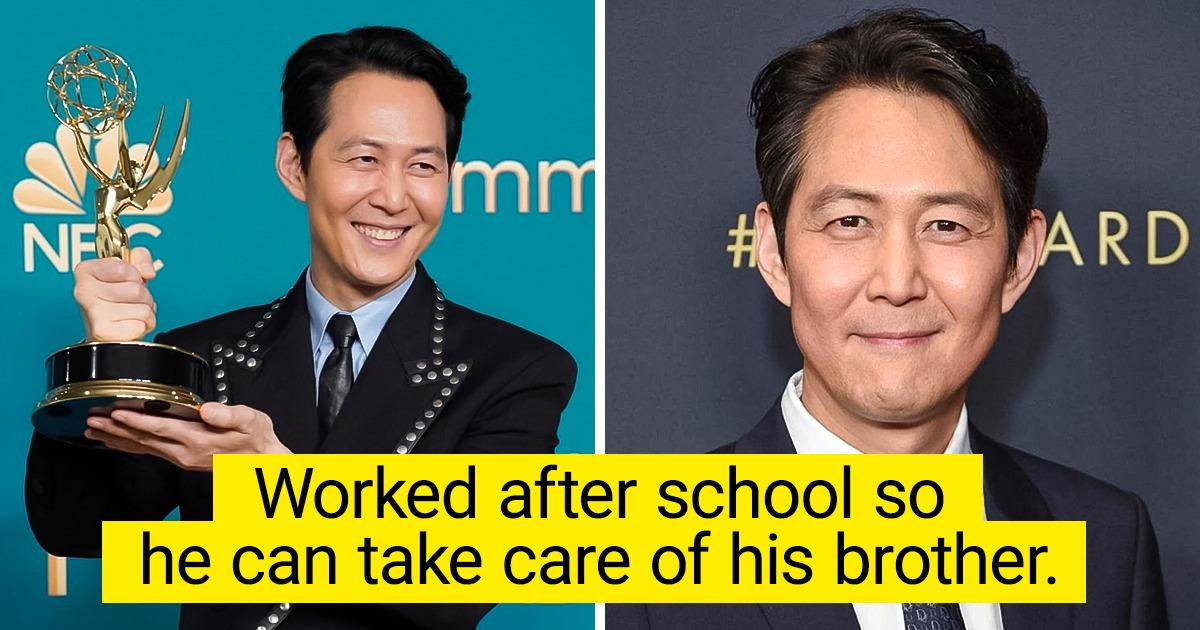14 Times Kindness Was the Plot Twist No One Saw Coming


Lee Jung-jae, or as we know him Seong Gi-hun from Squid Game, is the first Asian actor who won the Best Actor award at the Emmys. At the beginning of his career, everyone believed that he was from an extremely well-off background, but as it turns out, everything was not that easy for Lee. People might not be aware of the challenges he had to overcome in order to become the successful actor and artist we know today.
Lee graduated from one of the most famous high schools in South Korea. The school was located in a very well-known wealthy district, and because of this at the beginning of his professional career everyone thought he came from a highly wealthy family. When playing at a classmate’s house, he felt inferior and uncomfortable because of the holes in his socks, and the fact that he couldn’t afford the tuition. He was beaten in front of his classmates because he couldn’t pay it.
Lee later revealed that he actually comes from a very poor background. In a separate interview, Lee disclosed that his parents have gone through a lot, especially financially. Their finances were further strained as a result of trying to find extra care for his brother. His parents had to work several jobs in order to make ends meet and provide for him and his brother.
At that time, South Korea was experiencing a financial crisis, and there were not many performance opportunities. He said: “My credit card was stopped, my car was gone, and I had no cash on me. When I was desperate, I went to the production company to ask them to advance the payment of 3 movies to repay my debt.” Jung-jae got his start as a fashion model before he started acting in 1994, he has appeared in countless Korean films and TV shows.
Before Squid Game, Lee was already famous in South Korea. His big break was in a 1995 K-drama titled Sandglass, after this outstanding role, his career in acting took off. Barely 2 weeks after the Netflix series Squid Game premiere, it became a massive social-media phenomenon and the No. 1 show on the streamer’s popularity charts in 90 countries. Lee Jung-jae has received a lot of attention from overseas drama fans for his performance in Squid Game.
According to Today Online, Jung-jae earned the most of the entire cast. He was paid an estimated $300 million, around $253,637, per episode. With 9 episodes, Jung-jae walked away with over $2.2 million, making him the second-highest paid Korean actor.
After 20 years of a successful career, Lee opened up in an interview about a very private aspect of his life. For the first and last time, he talked about his autistic family member, who he looked after for most of his youth, especially while his parents weren’t around.
When Lee was asked about his family, he stayed quiet for a few seconds, then said, “I have a big brother.” During the interview he is visibly uncomfortable about revealing a very personal side of his life, he continues with, “I don’t think my parents will like me saying this.”
In the revealing interview, Lee shared more about all the challenges he had to go through when living with his brother. He would often have to chase after his brother to eat meals because he wouldn’t eat at the table. There were also a lot of instances where his brother would wander off and Lee would spend hours looking for him. He had learned from a young age that this was his family and that although they were not like other families, they were his.
He finished the interview by saying, “I think I accepted from when I was little that this is my life and this is what my family’s like. I’m not the oldest son, but I had to act the part, and I also had to act like a daughter and take care of family issues, so I think I grew up more quickly compared to others.”
Nobody would have imagined that this mega-star has had to deal with these kinds of difficulties. Do you have family-related problems that you managed to overcome?











